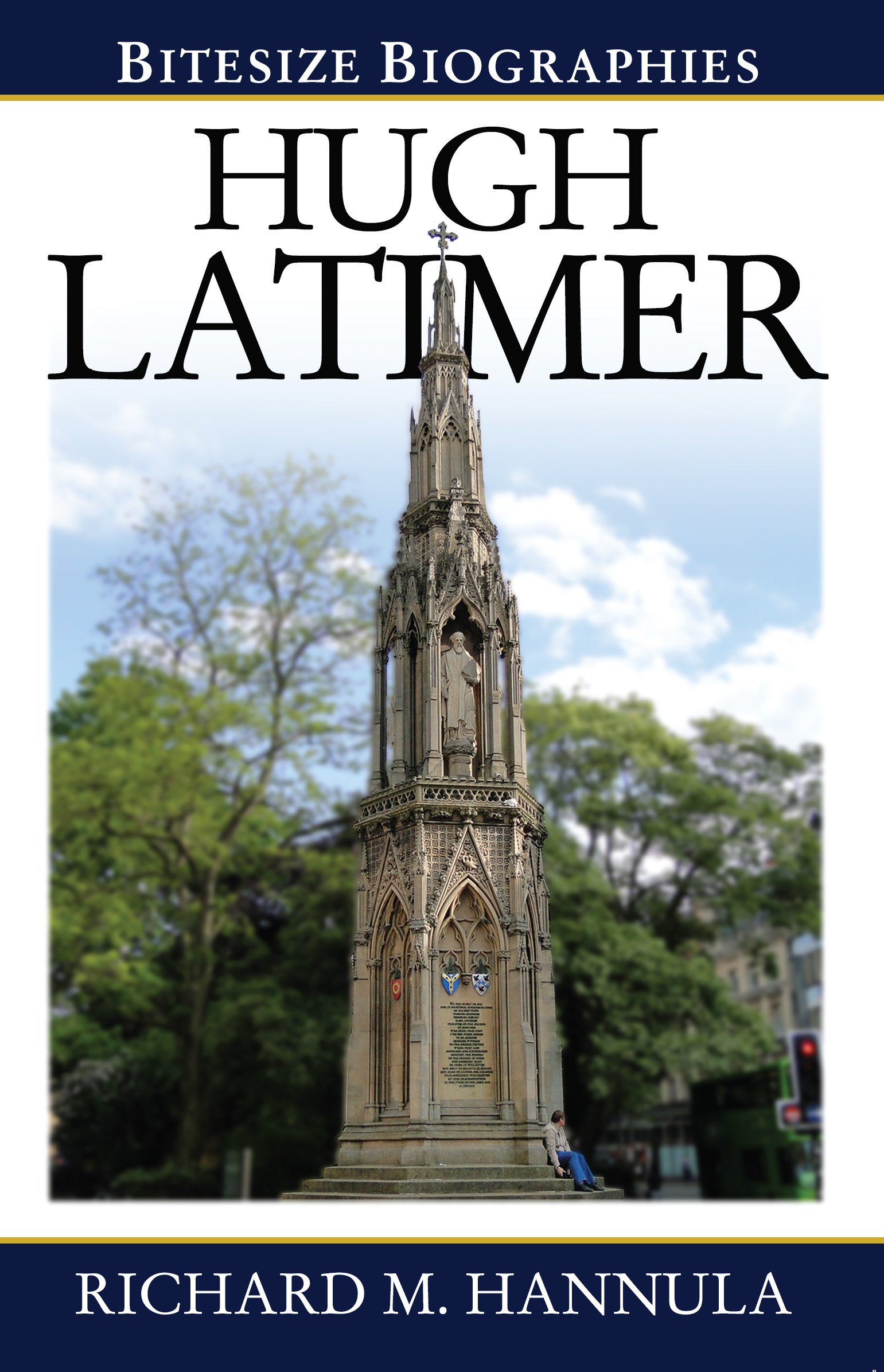A Book Review from Books At a Glance
By Andrew Ballitch
Hugh Latimer proved to be the foremost preacher of the English Reformation. So goes Richard Hannula’s argument. He claims, “Of all the English reformers, Latimer was the most effective warrior, doing battle against superstition, the cult of the saints, or any church practice that kept people from looking to Christ alone for salvation” (7). Latimer waged war from the pulpit.
Initially opposed to Reformation theology and ideals, Latimer was converted through the ministry of Thomas Bilney and became part of the small circle of evangelicals that met at The White Horse in Cambridge. Chapter 2 outlines Latimer’s preaching. We will return to the method and content of his preaching, but as this chapter continues the narrative of Latimer’s life, it helpfully illustrates that the Reformation in England was anything but inevitable forward progress. This is manifest through stories of recantations, sympathy with Henry VIII, and the like. Chapter 3 highlights Latimer as a parish pastor. In this context he taught a Protestant doctrine of vocation and preached against the cult of saints, relics, and pilgrimages. In his early fifties, Latimer became Bishop of Worcester. Chapter 4 describes him in this powerful role as faithful. He preached regularly, visited the parishes in his diocese, lobbied for education, and refrained from amassing wealth for himself. During this time, he found favor with the king and, despite his bold and public stances against even princely sin, turned out to be a staple preacher for Henry, serving as royal chaplain, and his court. At about the time the act known as the Six Articles passed, Latimer was asked to step down by this same monarch. He gladly accepted relief from responsibility, however, Henry coupled this with a ban on preaching lasting eight years. Chapter 5 describes Latimer as an outcast, eventually restored by Thomas Cranmer at the beginning of Edward’s reign. As the English Reformation accelerated, it found its most powerful voice in Latimer. With Mary’s ascendancy, Latimer, now an old man, attempted to maintain a low profile in the English countryside, but to no avail. Chapters 6 and 7 movingly detail the events of his trial and martyrdom, culminating in his reunion with Nicholas Ridley at the stake. As fire was set to the wood, Latimer encouraged his friend: “Be of good comfort, Master Ridley, and play the man. We shall this day light such a candle, by God’s grace in England, as I trust shall never be put out.” His last words were a prayer, as he succumbed to the flames, “O Father of heaven, receive my soul” (123–24).
One of the strengths of this book is the analysis of Latimer’s preaching. In terms of content, he called people to trust in Christ alone for salvation and to live a holy life. These two truths were inseparable for Latimer and served as the foundation for all his sermons. He masterfully navigated the relationship of faith and works, proclaiming the righteousness of Christ as the only basis for salvation and yet a righteous life as the necessary fruit of this grace. He relentlessly called those who claimed faith in Christ but bore no fruit to repent and amend, both nobility and commoner alike. Latimer’s preaching had a certain power to it owing to his methodology. He was blunt, utilizing simple language and humor. He retold biblical stories with imagination. But perhaps most compelling were his illustrations and applications. He used illustrations from everyday life and from his own experience, things people could relate to. And he applied his teaching specifically to individuals’ hearts and lives.
Though the author seems to adopt without qualification A. G. Dickens’s interpretation of religion in England before the Reformation and Roman Catholicism after the Reformation, a largely negative view populated with good guys and bad guys, another of the book’s strengths is that it can serve as a helpful lens through which to view the English Reformation. It is a coherent and accessible account that provides context for Henry’s many wives, England’s break with Rome, the Six Articles, and the overall waxing and waning of the Reformation in England. And the work is certainly not hagiography. Hannula is quick to point out Latimer’s silence during the execution of Henry’s second wife, Anne Boleyn, for instance.
What is offered to readers in this book is the story of a biblical preacher and faithful churchman during one of the most tumultuous and interesting periods of England’s history. It will have a general appeal and especially serve as an encouragement to pastors.
Andrew Ballitch is a pastor at Hunsinger Lane Baptist Church in Louisville, Kentucky. He holds a PhD in church history and historical theology from Southern Baptist Theological Seminary.
